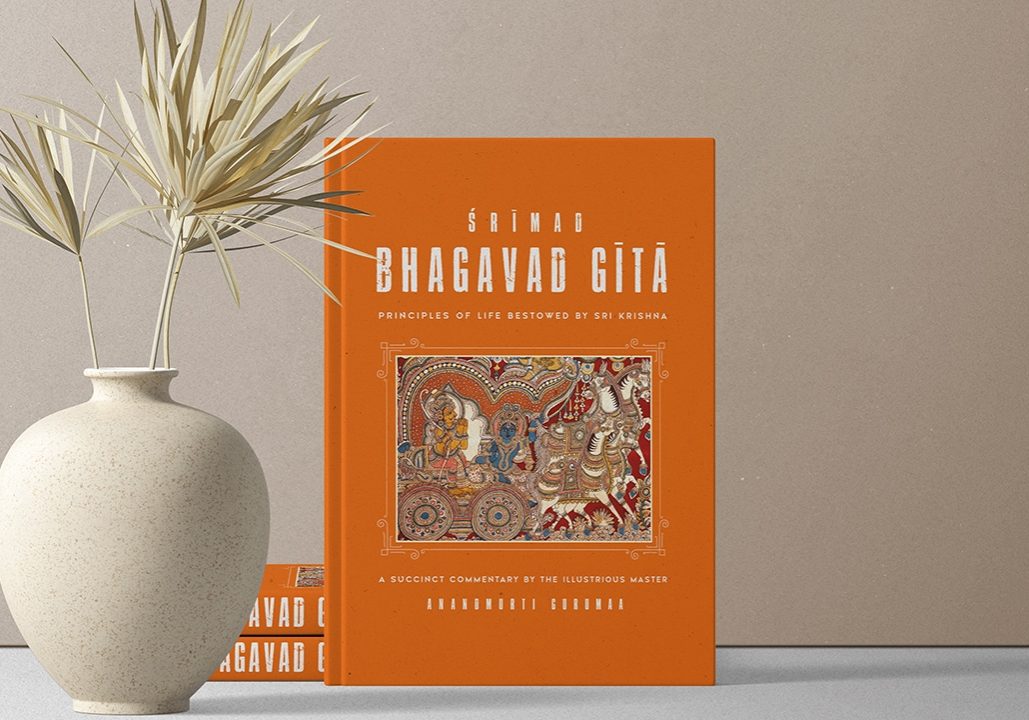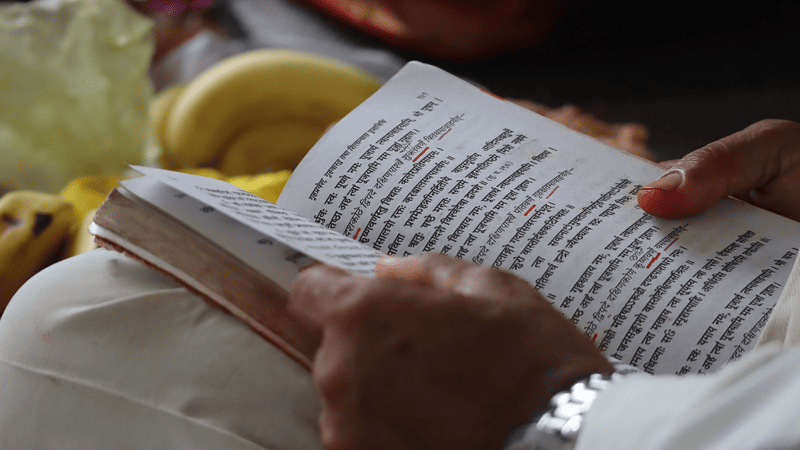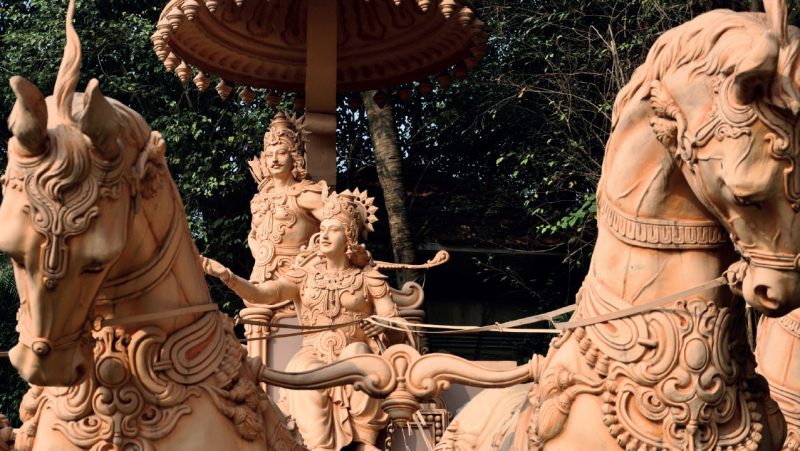
A Few Gems from The Bhagavad Gita
Insights from the Bhagavad Gita on Anger, Action, and Self-Realisation - By Anandmurti Gurumaa
Reading time: 4 minutes
The Bhagavad Gita is a vast repository of wisdom that answers not only spiritual quests but also matters about our daily lives. Although the scripture was written thousands of years ago, it is as relevant to modern man as it was to Prince Arjuna.
Arjuna fought a physical war and needed Krishna’s guidance to solve his moral dilemma of having to fight his own brethren. We all have to face some dilemma or the other. The human mind is the same everywhere. To do or not to do is a common situation one faces daily. Desire, anger, jealousy, lust, greed, and pride. These negative tendencies of the mind bring about undesirable consequences. I have selected a few verses from the Gita addressing some common issues.
How the powerful senses delude the intellect
‘Just as stormy wind sweeps a boat off its course in the sea, the senses are so powerful that even one of the wandering senses can lead the intellect astray.’ (Chapter 2, verse 67)
The storm of your desires sinks the boat of your senses-mind-intellect. When your mind engages with a sense object, just one sense is enough to plunder your intellect.
How anger arises
‘Attachment for those objects arises when a person keeps thinking of sense objects. Attachment leads to desire, and from desire, anger arises.’ (Chapter 2, verse 62).
Contemplation upon sensory objects leads to attachment, which leads to the desire to obtain that object. And if you do not attain it, if your desire is not fulfilled, anger arises. Desire is the mother of anger. Every time you get angry, the underlying cause is the non-fulfilment of your desires and expectations.
‘My relatives aren’t courteous, my neighbour did not even ask me for a cup of tea, my boss did not give me the promotion I so very deserved, the food wasn’t worth the money I paid in that restaurant’, the list continues ad infinitum! All such incidents lead to anger because the underlying desire for something is not fulfilled.
How anger destroys reasoning
‘Anger leads to clouding of judgment and delusion, which in turn leads to obfuscated memory, which in turn leads to the destruction of the intellect’s ability to discriminate, and when the intellect thus gets destroyed, one is ruined.’(Chapter 2, verse 63).
Anger clouds good judgment. Anger hypnotises the intellect, and all memorised knowledge evaporates in the fire of anger. With the assimilated knowledge gone, intellectual reasoning goes out of the window. It is a chain reaction; if you want to prevent it, stop obsessing over sense objects.
How should my worldly actions be?
‘You have a right to perform actions, but never to the fruits-of-the-actions. Let not the fruit-of-action be the driving motive, nor be averse to performing actions.’ (Chapter 2, verse 47).
You have the choice to perform actions. But, Shri Krishna says you cannot dictate the fruits of those actions – it is not in your hands. Hence, the desire for fruits should not be the driving force behind your actions. But this should not prevent you from performing actions.
‘Why should I do anything without eyeing the desired fruit of action?’ This type of thinking, too, is inappropriate. Do your duties without any expectation of appreciation and any desire for the fruit.
What are the characteristics of an enlightened being?
‘The one whose mind is not agitated by adversity, who does not crave pleasure, who is free from attachment, fear and anger – these are the characteristics of a self-realised being.’ (Chapter 2, verse 56)
The one who remains unattached, who is neither delighted by the auspicious nor revulsed by the inauspicious, such a being is said to be established in unwavering wisdom.’ (Chapter 2, verse 57)
‘The one who remains equanimous and peaceful in all conditions – heat or cold, happiness or sorrow, honour or dishonour – such a person is firmly established in the pure Self’. (Chapter 6, verse 7)
I know a sage who lived in Tapovan (a place in the Himalayas) for years. The temperature would decrease to minus 30 degrees Celsius, but he would wear only a loin cloth. He said he wanted to put into practice the Vedāntic statement: ‘I am not this body’. ‘I shed all clothes and lived in the freezing climes. The body experiences the cold, not I, for I am not the body.’ This steadfast resolve, along with some mysterious practices, saw him through the cold.
The one who is not enslaved to his body-senses mind is self-reliant. The intellect of such a person is always in equipoise and established in the supreme Existence with unwavering conviction.
What should be the lifestyle of a yoga aspirant?
‘Yoga destroys suffering of those who lead a balanced life and all activities including eating, sleeping, working and recreation are done in moderation.’ (Chapter 6, verse 17)
Do your work prudently and help the incapacitated, the elderly and the infirm. Lead a life of moderation and temperance. That is the right way.
How can I attain self-realisation?
‘Freed from attachment, fear and anger; fully absorbed in Me and taking refuge in Me, many beings having been purified by the fire of knowledge, thus attaining the transcendental Self.’ (Chapter 4, verse 10)
Shri Krishna says that all people have the potential to attain His state of being. The prerequisite conditions are: cut loose from all attachments and become free from anger and fear. But this alone is not enough; you must take refuge in an enlightened master.
Without such surrender, your ego will not die. The master hammers your ego down, enabling you to attain Krishna’s state of being. Remember, one doesn’t ‘become’ the form of Krishna – for every being is unique. One attains the same state of being that Krishna had attained.
For more information please refer to my book Bhagavad Gita- a succinct commentary. More information on the author can be obtained from www.gurumaa.com.





